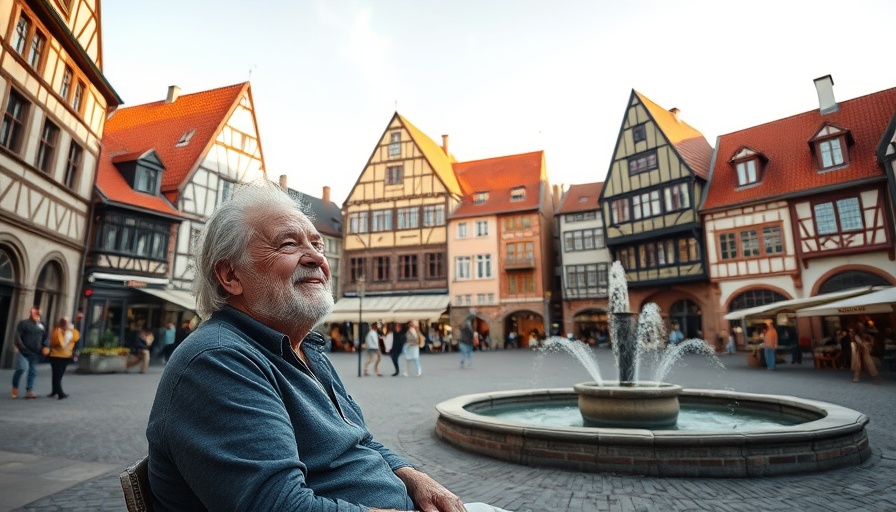
The Unexpected Charm of Bielefeld: Finding Value in Boredom
Bielefeld, a city often overshadowed by larger, flashier German counterparts, is stepping out from the shadows of its own dull reputation. With a population of around 338,000, this modest town has long been the subject of jokes suggesting it doesn’t even exist. Yet today, in an age when chaos and uncertainty seem to dominate global headlines, Bielefeld is being recognized for its unique charm and stability—a refreshing antidote to the vibrant turbulence of modern life.
The Evolution of an Identity
Once used as the punchline of quips about unremarkable places, Bielefeld has embraced its label of ‘boring’ and turned it into a source of pride. The city is characterized by well-kept parks, an opera house that showcases local talent, and a quaint historic center that invites residents and visitors alike to slow down and appreciate the simpler joys of life. Timo Teichler, a local radio host, reflects the sentiment of many Bielefeld residents, saying, "Sure, people like to joke about our city, but we’re more than just a punchline. There's a real community here."
Perception vs. Reality: Bielefeld’s Transformation
This transformation from a perceived lack of excitement to a city embodying stability mirrors broader trends across Germany, where many individuals are reassessing their desires in the face of rapid change. Economic shifts, political uncertainty, and global crises have prompted people to seek solace in the ordinary, celebrating the quaintness of everyday life. In this context, Bielefeld emerges not as a mere blip on the map but as an attractive option for those longing for sanctuary amid uncertainty.
The Broader German Context
Germany itself finds itself at a crossroads, grappling with its place in the world. Recent immigration challenges, economic pressures from the energy sector following the Russia-Ukraine conflict, and rising populism have left many citizens yearning for dependable governance and social cohesion. Bielefeld, with its grounded demeanor and sensible infrastructure, stands out, suggesting that sometimes, stability can be incredibly appealing.
Community Spirit: The Strength of Local Connection
Digging deeper into Bielefeld's community-oriented approach lends it an appealing character. Local initiatives such as farmers’ markets and art festivals encourage residents to engage with one another, fostering connections that enrich everyday life. This spirit reflects a broader cultural shift where people are starting to value connection over constant stimulation. As Bielefeld embraces its identity, it invites conversations about sustainability and the importance of local solidarity.
Historic Resonance and Modern Identity
The city’s rich heritage further grounds its modern image. Historical landmarks, such as the Sparrenburg Castle and the stunning theater architecture, provide a window into the past—reminding people that even in a city branded as ‘boring,’ there are stories waiting to be uncovered. By marrying modern life with its historical roots, Bielefeld paints a rich narrative that tells residents and visitors alike that adventure doesn’t always mean excitement; sometimes, it's about a peaceful embrace of one’s surroundings.
A Case for the ‘Boring’ Cities
As Bielefeld enjoy its newfound recognition, it raises important questions about how we define success and fulfillment in our communities. As society faces a barrage of headlines about crises, the relatively ‘boring’ towns may highlight the need for balance—a space where people can focus on personal well-being, genuine relationships, and community development. Perhaps in the quest for growth, the ‘boring’ cities of the world hold the key to a more stable and fulfilling future.
As other cities across Germany and beyond ponder their identities, Bielefeld stands as an example that quiet can often lead to clarity. The subtle joys of life, from shared laughter to community gatherings, illustrate that a little ‘boring’ might indeed be just what we need.
 Add Row
Add Row  Add
Add 




 Add Row
Add Row  Add
Add 

Write A Comment